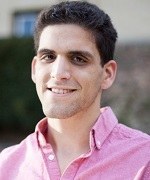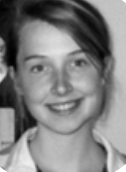SynBio Student Society
To establish the Cambridge University Synthetic Biology Society (CUSBS) to promote the field of synthetic biology amongst the student community and within schools in Cambridge. To continue development of OpenScope and other open technology projects.
The Idea
The Cambridge University Synthetic Biology Society (CUSBS) aims to promote the field of synthetic biology (SynBio) amongst the student community and within schools in Cambridge. Particular focus will be given to its real-world applications and interdisciplinary nature. Expert speakers from different SynBio disciplines will be invited to give talks, and links to external SynBio events and networks will be developed. We aim to work closely with both the SynBio SRI and the Open Plant initiative, and strengthen their direct links with STEM students.
To give members hands-on experience in designing and documenting open-source hardware and software, CUSBS will run student-led projects. The possibility of wet-lab based work for future CUSBS generations will be explored, and suitable workshop and lab infrastructures put in place. Educational events for local schools relating to the themes of synthetic biology, genetic engineering, open-hardware and electronics will be held and teaching resources made openly-available.
The student-led projects set CUSBS apart from many other student societies, and the vast majority of the SynBio Fund grant would be used to cover these costs. As the longevity and success of CUSBS depends on getting students engaged in projects as soon as possible, we envisage beginning enrolment by January 2016. We also intend to apply for sponsorship from science-oriented companies, banks and firms that have supported other societies in the past. We would be keen to coordinate this with the SynBio SRI such that resources could be pooled and funds received would be directed into a central pot.
The Team
- Atti English - Undergraduate student, Pembroke College, Natural Sciences, SynBio Student Society
- Lorenzo Venturini - Undergraduate student, Queens' College, Engineering, SynBio Student Society
- Souradip Mookerjee - Undergraduate student, St Catharine's College, Medicine, SynBio Student Society
- Simon Swan - Undergraduate student, Clare College, Dept of Chemical Engineering and Biotechnology, SynBio Student Society
- Ginny Rutten - Undergraduate student, Trinity Hall, SynBio Student Society
- Ocean Haghighi-Daly - Undergraduate student, Clare College, Natural Sciencesm SynBio Student Society
- Olivia Lala - Undergraduate student, New Hall, Natural Sciences, SynBio Student Society
- Anastasia Ershova - Undergraduate student, St John's College, Natural Sciences, SynBio Student Society
- Will Earley
Project Outputs
Project Report
Summary of the project's achievements and future plans
Project Proposal
Original proposal and application
Download PDF >>
Project application slides
Design files and documentation
Outcomes, Outputs, Progress
The Cambridge University Synthetic Biology Society (CUSBS) aims to promote the field of synthetic biology (SynBio) amongst the student community, particularly outside of the biological sciences. We aim to do this by creating online resources for learning about synthetic biology, promotion of events and networks, e.g. iGEM, hosting of speakers from a range of fields within SynBio and organising of student-led projects.
In our first year, we have successfully managed to start the above objectives. We have created a website (www.CUSBS.co.uk) for the current and future hosting of resources. Café Synthetique has been promoted on our Facebook page and iGEM at our events. Dr Guy-Bart Stan from Imperial College London gave a presentation on synthetic biology design and control, in Easter term. Three other speakers have expressed an interest in presenting.
The major outcome of the first year has been an ongoing student-led project to design and build a scanning, automated microscope for multiple samples and time-lapse studies, to demonstrate the use of lower cost DIY alternatives for instruments in research labs. This has attracted students from across the scientific disciplines, with 30 people on the project associated mailing list.
Speaker Events and Networks
- 1.1. The society hosted one speaker this year - Dr Guy-Bart Stan from Imperial College London. This talk was hosted in the engineering department and was well attended. Refreshments were provided, and all costs were covered by the society. Without specific attendance records, but from anecdotal evidence, there appeared to be a substantial amount of post-graduate attendance, with less undergraduates in attendance. The talk was mostly accessible, however may have been pitched above the general knowledge of an undergraduate from a non-biological discipline. However, given the popularity among post-graduates this does not appear to be a problem. Given the response the event was a success.
- 1.2. Other speakers have been contacted and three have responded with interest. The SynBio groups at UCL, Nottingham and Imperial have been contacted. These include Mathematicians, Molecular Biologists, Engineers and Computer Scientists. In future the society plans to hold approximately three talks in each of the first two terms of the academic year. The possibility of talks during exam term will depend upon future assessment of interest.
- 1.3. The society plans on expanding the range of speakers to include people working in industry / start-ups / intellectual property law / bioethics. In this way we would broaden the awareness of the implications of the field in terms of law, etc. to those from a scientific background, and attract new members of non-scientific disciplines, e.g. law.
- 1.4. While the responsibility of organising these events to date fell to the president it is planned to give the publicity officer greater autonomy in order to achieve our objectives.
- 1.5. Non-CUSBS SynBio related events have been advertised via our mailing list (cusbs-interest@srcf.net ; 59 members), on our Facebook page and at events. As the SynBio community grows in Cambridge, it is expected that promotion of these events will take up a greater amount of the publicity secretaries time.
- 1.6. All members of the outgoing committee signed up for accounts with EUSynBioS, however it doesn’t seem to be active upon last inspection.
Educational Workshops and Outreach Events
- 2.1. Whilst the outgoing publicity secretary attempted several to contact local schools, however none response was recieved. Should there be significant interest within the scoieties members, a new role will be created to organise these events. Given the experience of the previous committee the methodology may be changed to include the following:
- 2.1.1. Use of college and department outreach resources, such as contacts and relationships with schools, as these are more legitimate from a school point of view.
- 2.1.2. Use of combination of phone calls and email, rather than emails alone.
Student-Led SynBio Projects
- 3.1. The projects have been the major activity within the society this year. Initially two projects, Project 1 was not persued due to a different group (WaterScope) working on the same project to a higher standard than was possible for a student-led project. Project 2, has been successful in attracting participants from a diverse range of sciences, and is ongoing. Several undergraduate physicists, all of whom are on the incoming committee, contributed significantly to the project.
- 3.2. While project 2 is almost complete on the hardware side, more work is required to complete the software side. The time available to work on the project limited due to the parts not arriving until Easter term. Progress continued during Easter term before exams, with weekly 2-3 hour sessions, with an average attendance of about 7/8 people. Sessions became daily after the exams and May week when students had more time available. Additionally, some work has been done during the long vacation, primarily by Ptolemy Jenkins, incoming committee junior treasurer.
- 3.3. Project work has been carried out in the Dyson centre of the engineering department, where the CUSBS has secured space. This space is available for any future hardware projects.
- 3.4. Collaboration with WaterScope was frequent initially; however, it became apparent that any collaboration would be difficult to continue in the format of a student-led project. The Docubricks software has been used to partially document the project, with completion of the documentation expected to occur as the project continues.
- 3.5. The documentation has, as yet, not been released as open-source due to time constraints. Publication of documentation is expected during next academic year.
- 3.6. To date no further prototypes have been built. We plan to repeat the project next year. It would be expected to be more rapid, as documentation will have been generated. The goal would be to give some hardware experience to those members of the society from non-engineering backgrounds.
- 3.7. In collaboration with BioMakeSpace, the society plans on running at least one wetlab project in order to broaden and deepen members experience SynBio












